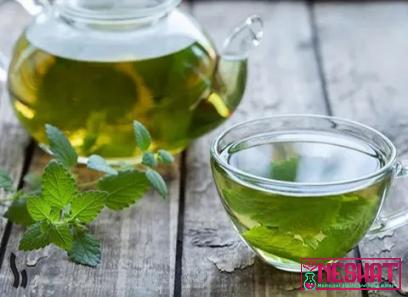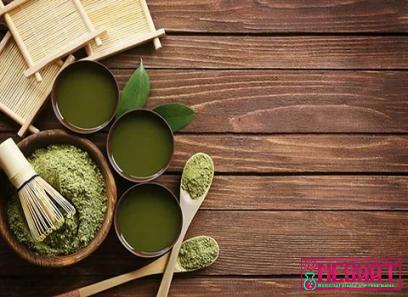Rose water has been used for centuries for its numerous benefits in skincare, haircare, and culinary applications. With the growing demand for natural and sustainable products, homemade rose water provides an excellent business opportunity for individuals seeking to tap into the beauty and wellness market. In this article, we will explore the benefits of homemade rose water and provide useful tips for starting a successful homemade rose water business. 1. Obtaining Roses: To produce high-quality rose water, it is essential to source fresh and pesticide-free roses. Consider partnering with local organic farmers or establishing your rose garden, ensuring the flowers are grown in optimal conditions. Additionally, research the different rose varieties to find the ones that provide the most aromatic and beneficial petals for rose water production. Popular varieties include Damask, Centifolia, and Rosa canina.

.
 2. The Distillation Process: Distillation is the key process in creating homemade rose water. The traditional method involves using a large pot, a heat source, water, and a collecting container. Place the rose petals with water in the pot, ensuring the petals are submerged but not soaked. Cover the pot with a lid upside down and heat on low to medium heat. As the steam rises, it will collect on the inverted lid and drip down into the collecting container, resulting in rose water. 3. Quality and Purity: To ensure the highest quality and purity of your homemade rose water, it is crucial to follow strict hygiene practices. Clean and sterilize all equipment, including the pots, utensils, and collecting containers, before the distillation process begins. This will prevent any contaminants from compromising the final product. Additionally, store the rose water in sterilized glass bottles with airtight lids to preserve its freshness and efficacy.
2. The Distillation Process: Distillation is the key process in creating homemade rose water. The traditional method involves using a large pot, a heat source, water, and a collecting container. Place the rose petals with water in the pot, ensuring the petals are submerged but not soaked. Cover the pot with a lid upside down and heat on low to medium heat. As the steam rises, it will collect on the inverted lid and drip down into the collecting container, resulting in rose water. 3. Quality and Purity: To ensure the highest quality and purity of your homemade rose water, it is crucial to follow strict hygiene practices. Clean and sterilize all equipment, including the pots, utensils, and collecting containers, before the distillation process begins. This will prevent any contaminants from compromising the final product. Additionally, store the rose water in sterilized glass bottles with airtight lids to preserve its freshness and efficacy.
..
 4. Packaging and Labeling: Eye-catching and informative packaging is essential to attract customers. Design labels that highlight the natural and organic aspects of your homemade rose water. Include information about the rose variety used, any other organic ingredients (if applicable), the distillation process, and the product’s uses. Remember to comply with local regulations regarding labeling and ingredient disclosure. 5. Marketing and Sales: Utilize various marketing channels to promote your homemade rose water business. Establish an online presence by creating a website or social media accounts where you can showcase your products, educate customers about the benefits of rose water, and engage with potential buyers. Consider partnering with local beauty stores, wellness centers, or boutiques to broaden your sales reach. Offering sample sizes or gift sets can also help attract customers and encourage repeat business.
4. Packaging and Labeling: Eye-catching and informative packaging is essential to attract customers. Design labels that highlight the natural and organic aspects of your homemade rose water. Include information about the rose variety used, any other organic ingredients (if applicable), the distillation process, and the product’s uses. Remember to comply with local regulations regarding labeling and ingredient disclosure. 5. Marketing and Sales: Utilize various marketing channels to promote your homemade rose water business. Establish an online presence by creating a website or social media accounts where you can showcase your products, educate customers about the benefits of rose water, and engage with potential buyers. Consider partnering with local beauty stores, wellness centers, or boutiques to broaden your sales reach. Offering sample sizes or gift sets can also help attract customers and encourage repeat business.
…
 6. Customer Education and Support: Demonstrating knowledge and providing excellent customer support can significantly enhance your homemade rose water business. Educate potential buyers about the various uses and benefits of rose water, such as its anti-inflammatory and antioxidant properties or its ability to soothe and nourish the skin. Answer customer inquiries promptly and provide detailed instructions for storing and utilizing rose water effectively. Conclusion: Starting a homemade rose water business can be a rewarding endeavor, both financially and ethically. With careful attention to sourcing, distillation, quality control, and packaging, you can create a sustainable and successful business venture. By promoting the natural and beneficial qualities of homemade rose water, you will attract customers who value organic and holistic beauty products. Embrace the growing demand for eco-friendly and chemical-free alternatives and be part of the natural skincare revolution.
6. Customer Education and Support: Demonstrating knowledge and providing excellent customer support can significantly enhance your homemade rose water business. Educate potential buyers about the various uses and benefits of rose water, such as its anti-inflammatory and antioxidant properties or its ability to soothe and nourish the skin. Answer customer inquiries promptly and provide detailed instructions for storing and utilizing rose water effectively. Conclusion: Starting a homemade rose water business can be a rewarding endeavor, both financially and ethically. With careful attention to sourcing, distillation, quality control, and packaging, you can create a sustainable and successful business venture. By promoting the natural and beneficial qualities of homemade rose water, you will attract customers who value organic and holistic beauty products. Embrace the growing demand for eco-friendly and chemical-free alternatives and be part of the natural skincare revolution.










Your comment submitted.